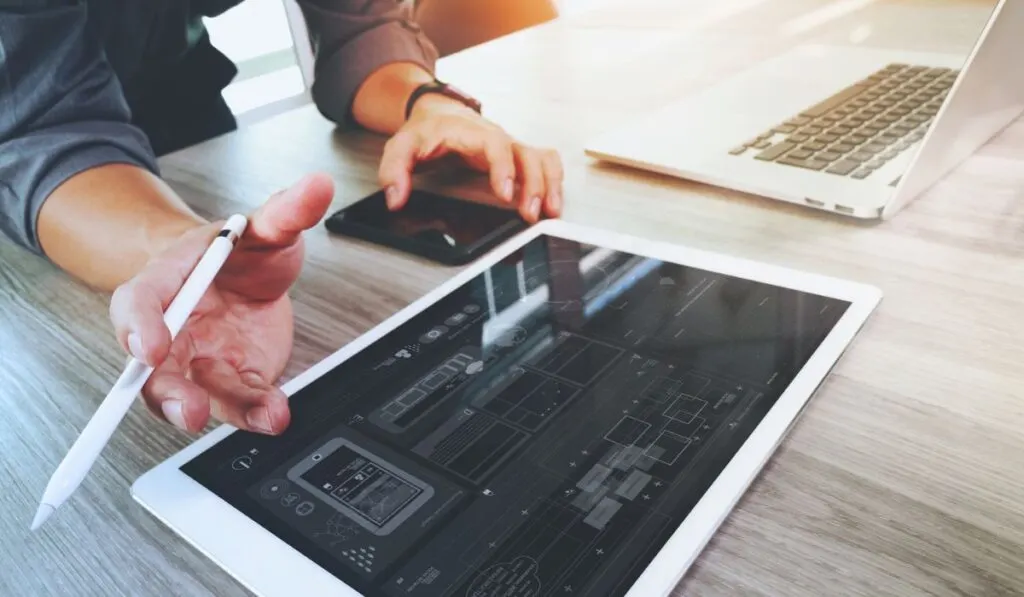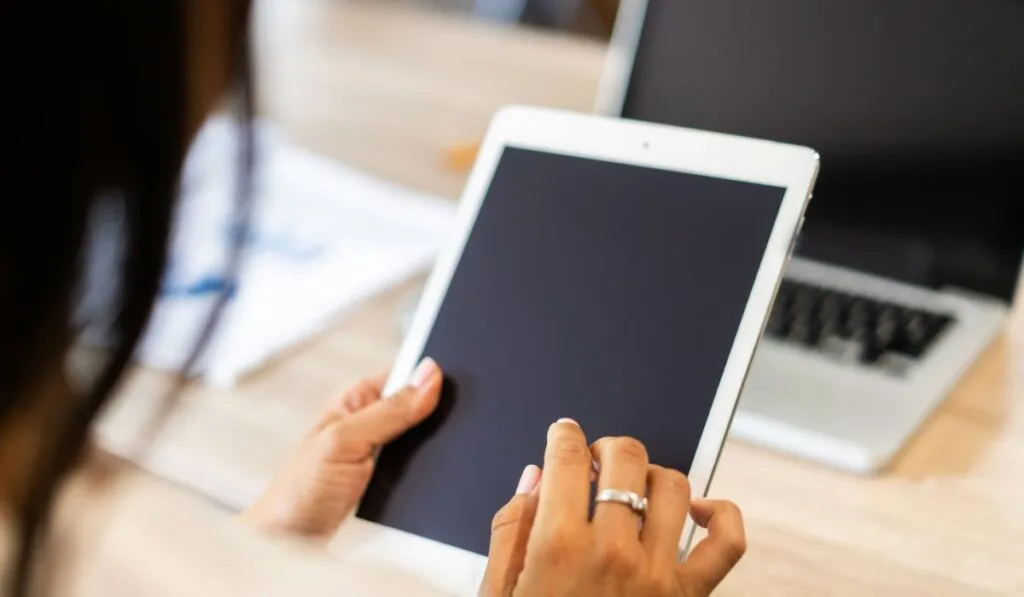For the most part, smartphones are our go-to devices. Communication is no longer their primary function, as we use them for everything from entertainment to professional productivity. However, some tasks work better on a larger form factor.
It can be difficult to decide between a laptop and a tablet. Tablets tend to be less expensive and easier to carry, but are quite limited in their abilities due to limited memory space. Laptops allow you to run more programs, but they will cost a bit more and they aren’t as portable as tablets.
All these factors may influence your decision when deciding between a laptop and tablet purchase. Let’s look at the differences between laptops and tablets that you need to consider as you shop.
What are the Benefits of Owning a Tablet?

Functionality and Affordability
Tablets get designed to be lightweight and easy to carry, making them ideal for people who are always on the go. Furthermore, they come equipped with a touchscreen display, allowing a more intuitive and interactive experience.
That portability is great for watching movies, streaming TV shows, and listening to music. They also have some limited gaming capabilities. Tablets are generally more affordable than laptops, which makes them an accessible option for people who want a portable device at a reasonable price.
Productivity and Capability
Tablets are becoming more useful for work and productivity. For example, most tablets come equipped with apps such as word processors and spreadsheets.
Various sensors and cameras make tablets more suitable for onsite work. You can use tablets for several basic tasks, including web browsing, email, social media, and video conferencing. They can also work as a second screen for your PC or laptop.
Tablets are lightweight, easy to hold, and have a backlit or organic LED display, making them ideal for reading in most lighting conditions.
What Are the Downsides of Owning a Tablet?
Storage Capacity, Processing Power, and Peripherals
Some tablets may have limited storage capacity, which can be a problem if you plan to store a lot of media or many apps on your device. They may also have less powerful processors than laptops or desktops, making them less suitable for tasks requiring more processing power.
Tablets may not have a mouse or built-in keyboard, making it difficult to type or navigate on the device. You can connect external keyboards and mouses, but they may not provide the same experience as a laptop or desktop.
Software Options, Multi-Tasking, and Upgradability
Tablets may have more limited software options than laptops or desktops, making running certain programs or apps difficult or impossible. That can be a problem for those who require proprietary software for work.
In addition, tablets are not as upgradeable as laptops or desktops. Unfortunately, that means you will not be able to upgrade the device’s hardware, and there is a limit to future software updates.
Connectivity and Durability
Tablets may not have the same connectivity options as laptops or desktops, making it difficult to connect to external devices such as printers or storage drives. Plus, tablets are not as durable as laptops or desktops. They are usually more prone to scratches, cracks, and other physical damage.
What Are the Benefits of Owning a Laptop?
Productivity and Entertainment
Laptops are generally more powerful computing devices that allow you to work on various tasks, such as word processing, spreadsheets, and presentations. They are considered better than tablets for professionals, students, and entrepreneurs who need a device for work or study.
Depending on the power of the hardware, they can also have great gaming capabilities. Laptops are great for watching movies, streaming TV shows, and listening to music. That said, audio quality is a common complaint in less expensive models.
Connectivity and Upgradability
Laptops have many connectivity options, such as Wi-Fi, Bluetooth, and USB ports. Furthermore, laptops are upgradeable, which means you can upgrade the device’s hardware or software.
Multi-Tasking and Durability
Laptops have more multi-tasking capabilities than tablets, which means you can work on multiple tasks or windows at the same time. In theory, laptops are more durable than tablets. Because the lid closes, they are less prone to scratches, cracks, and other physical damage.
Keyboards, Mouses, and Software options
Laptops have a built-in keyboard and touchpad, making it easy to type and navigate. You can also connect an external keyboard and mouse to the device for a better experience.
In addition, they have more software options than tablets, which makes them more versatile and able to run a wider range of programs or apps.
What Are the Downsides of Owning a Laptop?
Weight and Size
Laptops can be heavier than tablets, making them less portable and more difficult to carry around. In addition, they are usually bulkier than tablets, making them less convenient to use in tight spaces or on small surfaces.
Battery life, Heat, and Limited portability
Laptops typically have a shorter battery life than tablets, so you must charge them more often. In addition, due to the battery drain and performance, they generate more heat than tablets.
That can make them uncomfortable to use for extended periods. However, you can purchase a laptop stand with built-in cooling fans to combat this.
Laptops are portable but have some restrictions, like limited battery life and size. Therefore, they are not as portable as tablets. In addition, they are not as easy to hold and use in different angles and positions.
Which Has More Storage Space?
Both devices can have large amounts of storage space. However, that space is always more expensive in tablets. In other words, you will always get more storage at a lower cost with laptops (view our laptop storage guide here).
Which Will Last Longer?
The lifespan of either device depends on several factors. Most important is how well you take care of your device. However, it also depends on how much it gets used and the quality of the device.
How to Choose Between a Laptop and a Tablet

When choosing between a laptop and a tablet, you must consider your specific needs and how you plan to use your device. Here are some factors to consider when making your decision:
A tablet may be a better option if you need a device you can easily carry around. In addition, tablets are generally lighter and more portable than laptops.
A laptop may be better if you need a more powerful device for work or study. Laptops have more processing power and are upgradeable. They are better suited for tasks such as word processing, spreadsheets, and presentations.
You can use both laptops and tablets for entertainment. Still, laptops usually have more gaming capabilities and are better suited for watching movies and streaming TV shows. Ultimately, you will need to consider the most important factors, such as portability, productivity, and entertainment, and choose the device that best fits your lifestyle and requirements.
